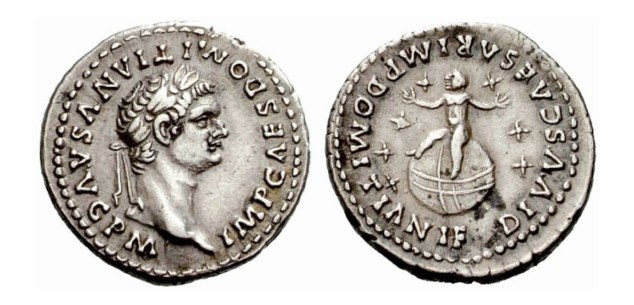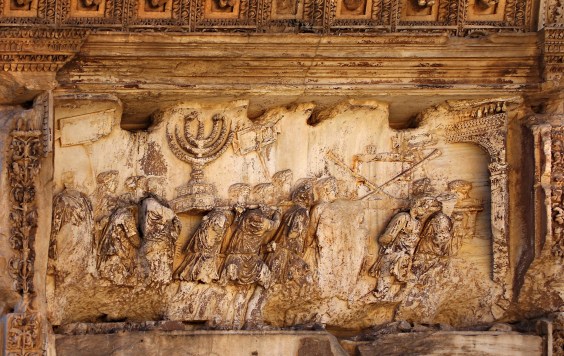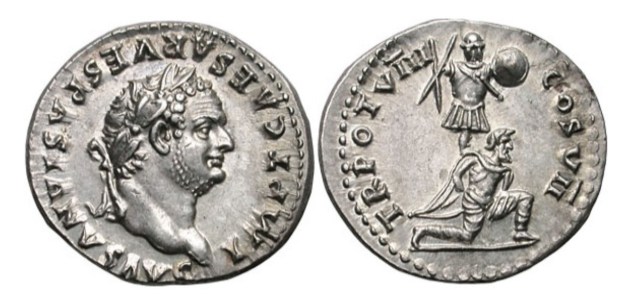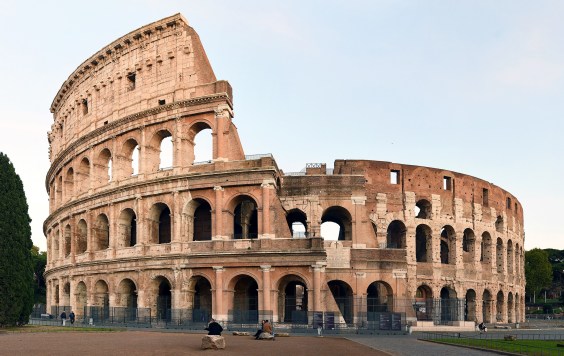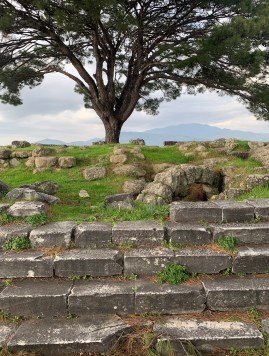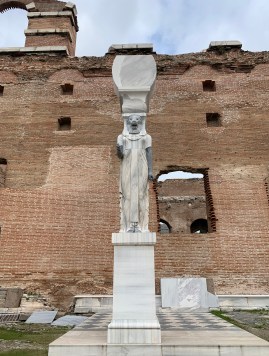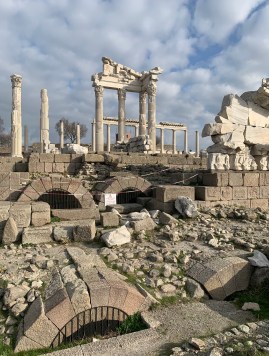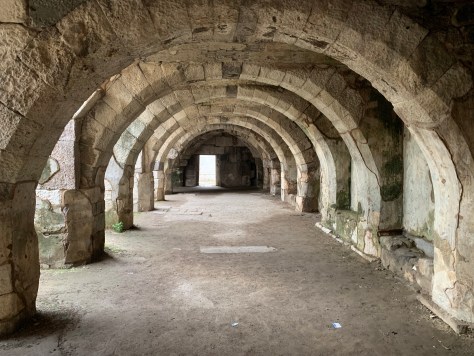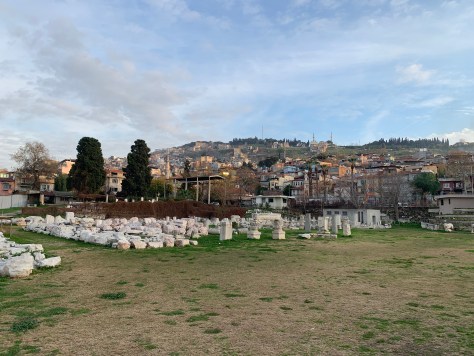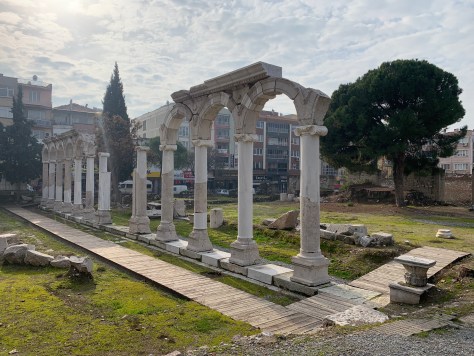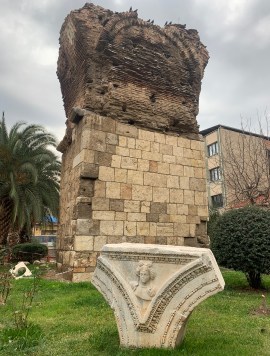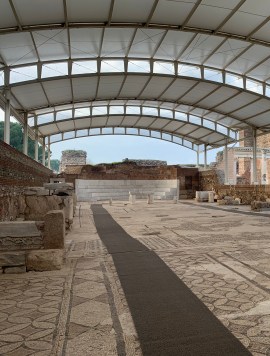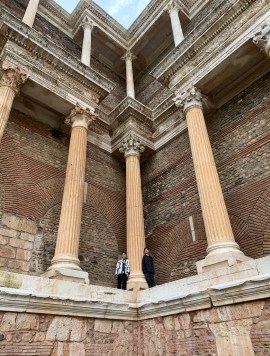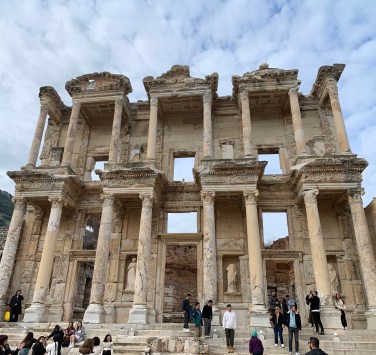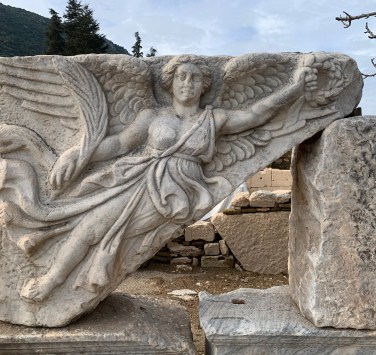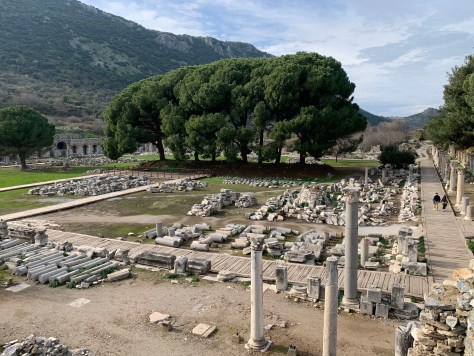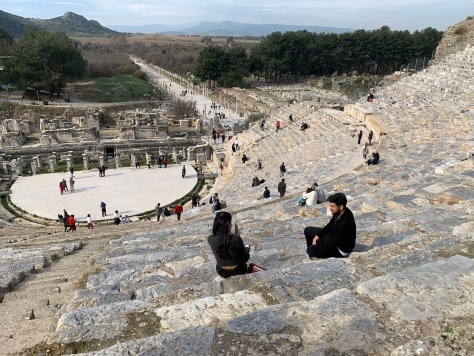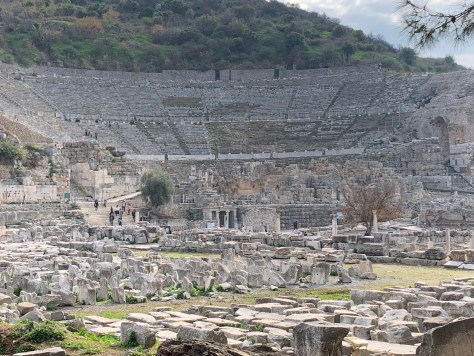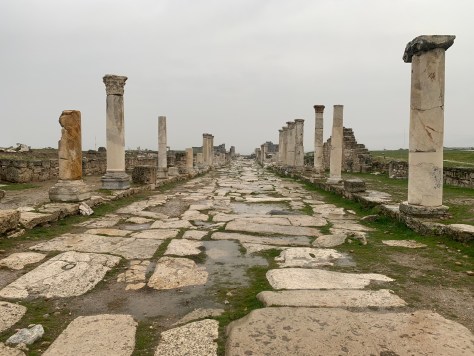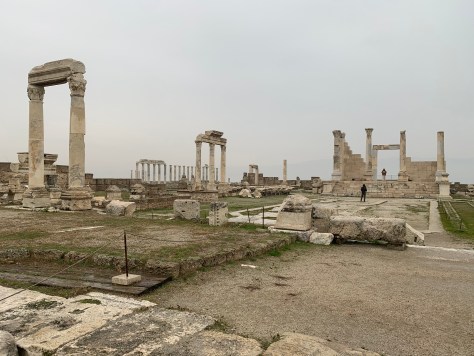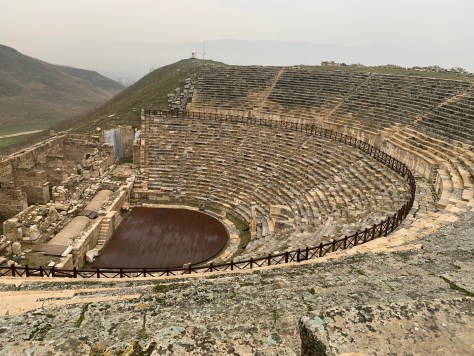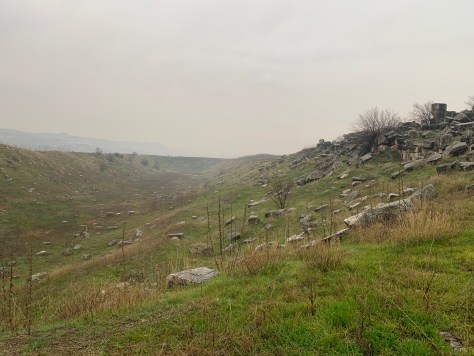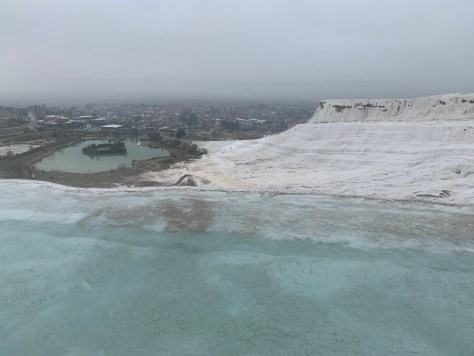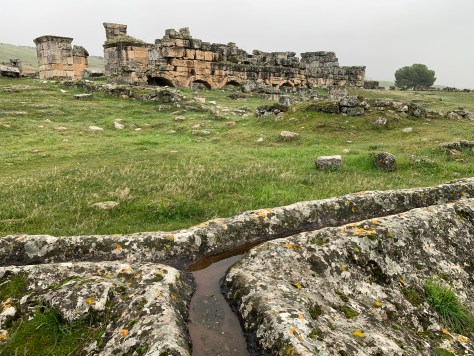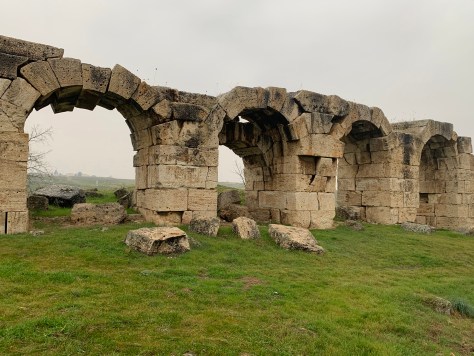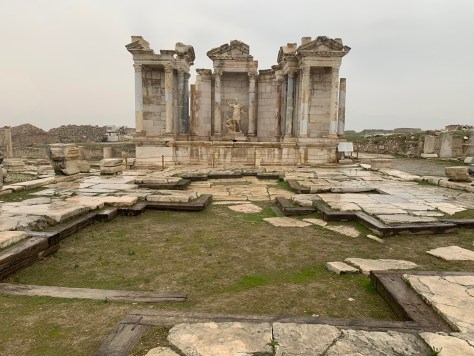Priscilla Shirer remembers the advice she got earlier in her ministry career: You cannot do a thousand things to the glory of God, but you can do one or two.
“I’ve never forgotten that,” she said. Each season of life, she prays and discerns what priorities she believes God has laid out for her. Whatever doesn’t align with those is a “no for now.”
“This is not always easy,” she said. “No, it’s a constantly saying, ‘Lord, please help us to have a little bit of discernment and wisdom. … give us enough courage to be willing to say the nos so that we can say our best yeses to where you want us to be.’”
The best-selling Bible study author, teacher, and speaker recently said yes to another movie by the Kendrick Brothers—the evangelical producers Shirer previously worked with on War Room and Overcomer—and an accompanying devotional book.
The Forge, released in August, was a project that made sense for her as a 49-year-old mom of three boys in their teens and early 20s. Shirer’s character works to get her 19-year-old son on track and prays for him to know Jesus.
“I felt really compelled to be a part of telling a story of a young man whose life is completely shifted because someone older and wiser affirms him, challenges him, and encourages him to rise up in manhood,” she said.
Shirer—who comes from a ministry family as the daughter of pastor Tony Evans—was inspired by the movie to write about discipleship and surrender. She and her husband live in Dallas, where they run Going Beyond Ministries.
Her Going Beyond Live events feature Bible teaching, prayer, and worship led by her brother, singer Anthony Evans. Over the summer, she held the largest live event Lifeway has hosted since the pandemic, with 5,600 women in person in Athens, Georgia, and around 50,000 watching the simulcast online.
This weekend, she’ll host the final Going Beyond Live event of the year in Cincinnati.
Recently, Shirer sat down with CT to discuss her latest projects, what it looks like to turn over our lives to God in the day-to-day, and why she sees surrender as the key to finding peace and hope.
How did the movie The Forge inspire your new book?
The Kendrick Brothers asked if I would be interested in writing a companion book geared specifically toward women that might see the movie and then be thinking about discipleship and surrendering to the Lord fully in their lives. How could they actually take whatever the Holy Spirit may have done in their heart while they were watching it and put feet on it?
Sometimes we have a sense of what we would like to do, but we’re actually not sure how, so this book gives a little bit more detail on what it looks like to live a life that is fully surrendered to Jesus. Not just at church on Sundays, and not just sort of doing the dutiful thing that we are supposed to do as Christians, but actually living a life where your heart is yielded to the Lord.
In I Surrender All, you wrote, “If you and I are struggling to surrender our all to Jesus, it most likely has something to do with our estimation of His identity.” Many in the church have heard time and again who Jesus is, so how do we keep from getting complacent about Jesus’ identity?
I think one of the main ways is that we remember what he has delivered us from. We remember what we would have been, had it not been for the grace and the mercy and goodness of God.
Every one of us has a testimony. Some of us have a more stark, striking testimony than others, but all of us were in sin, and all of us would have had an eternal destination that was separated from God. If it weren’t for the grace of God, none of us would be able to experience freedom or victory and a life that is filled with peace and stability of heart and mind.
So the first thing that keeps us calibrated to make sure our heart is turned toward him sincerely is remembering what could be all of our lot if it weren’t for his grace and mercy. That makes you continually grateful.
What other barriers do you think that Christians, especially Americans, encounter when it comes to surrendering their lives to God?
There’s a constant competition in the culture we live in about what our priorities should be. We want to be comfortable; that is the Western view of what happiness is, that your life is comfortable and easy and everything’s going like you would like for it to go. That has been misunderstood and misconstrued as the favor of God on you, but that’s not the way Jesus described discipleship. In fact, in many ways, it’s the opposite.
Jesus said, If anyone will be my disciple, they’ll deny themself and take up a cross. We don’t live in a culture that values self-denial and restraint. As disciples of Jesus Christ, we have to remember that he’s the priority, being willing to lay down our lives for him and surrender sometimes our ambitions and our goals, the way we thought our life would be, the family dynamic we thought we’d have, the way it would look. Laying down those sorts of things becomes a way that we’re able to begin to recalibrate again.
How has your understanding of surrender has changed over the years?
One of the things that occurred to me is that surrender looks different in every season but that we’re always being asked to surrender something. At every season of life, there is another level of surrender, and on the other side of that surrender, there’s a new facet of abundant life and an experience with God. Surrender looked different in my 20s, and what I sensed the Lord asking me to release in my 30s is different than it is now in my 40s.
As I move into the next decade and season of life with my children now growing up, flying the coop, and the house getting a little emptier and quieter, I’m asking, “Okay, Lord, now what would it look like for my life to be surrendered to you here, and am I willing to lay down my thoughts of what this season should be, or what I want it to be, if you ask me for something different? Will I be willing to walk with you in this season in the new ways that you call me to?”
What does it look like practically for someone to be truly surrendered to God in their everyday life?
Well, one of the main things is starting the day with a perspective of, “Lord, this is your day. There are things you already have planned for me in this day that I don’t even know yet. There are strangers that I’m going to meet. There are frustrating circumstances that are going to happen. So, Lord, would you help me to hold my hands loosely on the 24 hours that you have ahead of me and to be tender of heart enough that I can be aware that every derailment, every potential frustration, every encounter that I have, any of those things can be shimmering with divine possibility.” To me, that’s what it is. It’s not always easy, by the way.
Both in the movie and in your book, there’s this connection between surrender and discipleship. What is the key element of needing to surrender in order to be a disciple?
The entire disciple’s life is one of surrender. When you look in the Scriptures, you see Jesus basically saying to those 12 disciples, “Follow me.” They had to actually leave behind physical comforts, physical realities, like when Peter was fishing.
It’s a requirement for discipleship, because in order to fully honor Jesus and to keep him first, we can’t be allowing that priority to bump heads with the things we treasure, whether it’s an ambition, or whether it’s a comfort in unforgiveness, or whether it’s a story of success that we’ve written in our minds as to what our success is supposed to look like. Being able to release that and let it go is a requirement for us to fully follow Jesus.
How can the church better step into this space of mentorship? What are some things the church body can do better to disciple young people?
I think one of the main ways is by highlighting to younger people in the church the need that they have for the more seasoned, more mature believers. Let those young believers know, The resources you need to be successful in your marriage are sitting right around you if you would be receptive, teachable, and humble enough to hear wisdom. Same thing for business builders, young entrepreneurs. There are businesspeople that have been doing this longer than you. They are your resources for how to honor God, have integrity in your business but also do it with success.
The very reason why online church is fantastic but can’t be a replacement for a local gathering is because community was the whole point to begin with. It was supposed to be iron sharpening iron.
It has to be something that [we talk about] just as clearly as we speak about salvation and just as clearly as we talk about the Holy Spirit or the fruit of the Spirit—we talk about some things very didactically and clearly from the pulpit—this should be one of them as well. Discipleship is available to us in this body, if we’ll just take advantage of it.



















